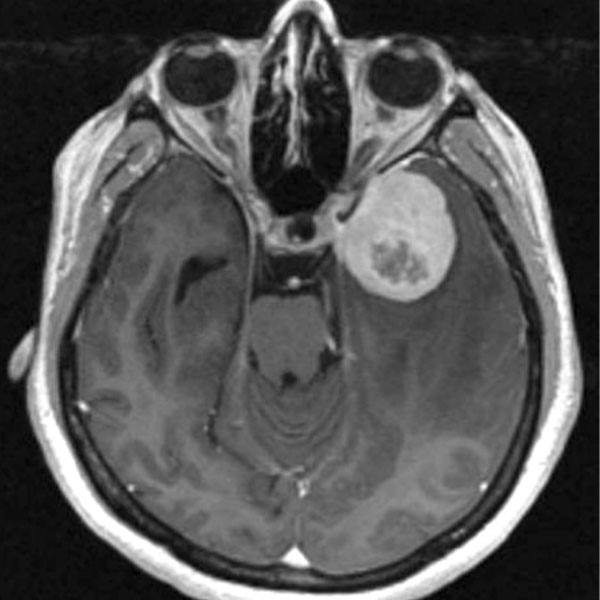-
Sharing Mayo Clinic: A glimmer of hope

While Gregor Heinrich never could have imagined that testicular cancer was related to his problems with vision and gait, learning he was positive for KLHL11 protein biomarkers meant he could receive treatment for both the cancer and the illness behind it.
When Gregor Heinrich visited Mayo Clinic in Jacksonville, Florida, in November 2019 seeking a second opinion for puzzling symptoms thought to be related to multiple sclerosis, he wasn’t sure what doctors might discover. Plagued by peculiar vision and balance issues for six months, he theorized that ear abnormalities might be the source of the problem.
“I thought I had maybe crystals in my ear,” says Gregor, who lives in Boca Raton, Florida.
While Gregor didn’t have ear crystals, what his Mayo Clinic team uncovered as the root of his medical concerns did sparkle — at least when examined using tissue immunofluorescence. Autoantibodies to Kelch-like protein 11, or KLHL11 — discovered by Mayo Clinic scientists in 2019 and detected in Gregor’s cerebral spinal fluid — emit a unique sparkles pattern when stained during immunofluorescence testing.
Identifying the KLHL11 biomarker using advanced testing from Mayo Clinic Laboratories (Test ID: K11CC or K11CS) allowed Gregor’s medical team to confirm a diagnosis of testicular cancer-associated paraneoplastic encephalitis. In addition to causing an array of neurological problems, the condition is associated with cancer in more than 70% of patients.
Read the rest of Gregor's story on Mayo Clinic Laboratories Patient Spotlight.







